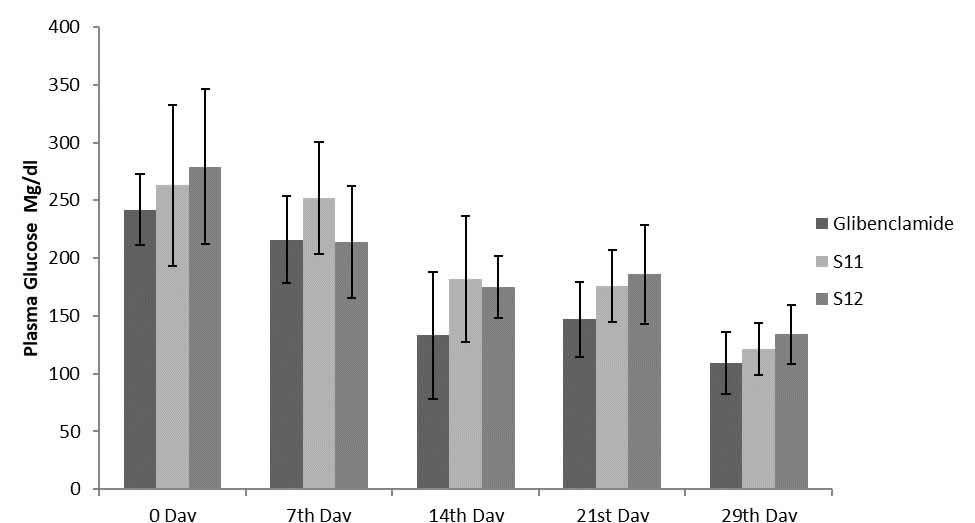| Product Number 1 | |
| Product | Anti-Tick Vaccine |
| Researcher | Prof. Abid Ali |
| Major Area/Department | Zoology |
Introduction:
Ticks transmit more than thirty infectious agents to humans and animals, and annual estimated economic losses due to these parasites are more than USD 27-32 billion globally. Direct losses of tick-borne diseases have not been estimated nationally in Pakistan. However, the expected estimated losses exceed the combined losses from all other zoonotic diseases. Bm86-based anti-tick vaccine (Gavac™ in Cuba and TickGARD company closed in Australia in 2010) is the only commercialized anti-tick vaccine. However, this vaccine is specific to Cuba, and the efficacy provided in different regions is insufficient to give a protection level minimally acceptable. Therefore, searching for novel antigens as an anti-tick vaccine continuously took impetus. Herein, we bioinformatically screened the genomes of ticks to select antigens, where we identified potential tick-derived proteins as candidates for anti-tick vaccine. The selected antigens were expressed as recombinant proteins, produced, and tested as an anti-tick vaccine that substantially reduced (≥ 85%) tick infestation on an animal model. The patent application for this vaccine has been initially approved, and the revised version has been resubmitted to IPO Pakistan. The registration of the patent application has been approved in Brazil. Since this anti-tick vaccine has a high potential for tick control, we further propose to produce it on a large scale and commercialize it.
| Product Number 2 | |
| Product | Management Information System (MIS) |
| Researcher | Directorate of IT |
| Major Area/Department | Computer Science |
Introduction:
Effective management and administration in academic institutions have become paramount in today’s rapidly evolving educational landscape. Universities and colleges worldwide embrace innovative technologies to enhance education quality, streamline administrative processes, and improve students’ and faculty’s overall educational experience. At the forefront of this transformative wave is the University Management System (UMS). The COVID-19 pandemic disrupted traditional educational methods, prompting AWKUM University to respond with innovative solutions. In response, the university developed its own UMS to cater to the needs of students and faculty.
Key Features and Functionality:
| 1. Online Admission System Module | ||
| 2. Testing Service Module | ||
| 3. Student ID card Management | ||
| 4. Student Societies Management | ||
| 5. Hostel Management | ||
| 6. Transport Management | ||
| 7. Chief Proctor Office Management | ||
| 8. Department management | ||
| 9. Faculty Management | ||
| 10. Online Exam, Quizzes, Assignment Management | ||
| 11. Online Learning | ||
| 12. Temporary Clearance Module with QR Code | ||
| 13. Final Clearance Module | ||
| 14. Fee Collection Module | ||
| 15. Scholarship Management | ||
|
16. Mobile App 17. Bank integration 18. KuickPay Integration |
||
| 19. QEC Evaluation Module | ||
| 20. Faculty Research Management Module | ||
| 21. Examination Management Module | ||
| 22. Online Application for Jobs | ||
| 23. Degree verification | ||
Product Number 3 | |
Product | Montelukast |
Researcher | Dr. Ibrahim Shah |
Major Area/Department | Pharmacy |
Introduction:
It is used to control and prevent symptoms caused by asthma. It is also used to relieve symptoms of hay fever and allergic rhinitis. It causes suicidal tendencies and banned in the USA. Our drug formulated changed its delivery system so that it does not affect the nervous system cells which create suicidal tendencies. Patent application is submitted in Pakistan and USA.
| Product Number 1 | |
| Product | Anti-Tick Vaccine |
| Researcher | Prof. Abid Ali |
| Major Area/Department | Zoology |
| Product Number 4 | |
| Product Name | Mealworm Larvarium for high valued protein and by product |
| Researcher | Dr. Muhammad Qayash Khan |
| Department/Major Area | Fisheries and Aquaculture, Department of Zoology |
Introduction:
The culture facility of yellow mealworm (Tenibrio molitor) has been established at Fisheries and Aquaculture laboratory AWKUM. PhD, MPhil, and BS students are actively involved in the characterization of the high valued organic products/protein for commercial application as valuable yield.
The research-based culturing techniques and production of highly valued by-products including protein, chitin, fats, and chitosan have a great potential for feedmill and pharmaceutical industry. The high-quality protein will replace the expensive fishmeal and soya meal in poultry, fish, and livestock feed mill industry. The rearing and production of mealworm as a cottage industry will uplift the socio-economic status of the poor community through self- employment.

| Product Number 5 | |
| Product Name | Breeding and Culture of Aquarium Fishes for Commercial application |
| Researcher | Dr. Muhammad Qayash Khan |
| Department/Major Area | Fisheries and Aquaculture, Department of Zoology |
Introduction:
Pakhtunkhwa province is home to variety of precious frog species. Our PhD and MPhil students have studied and categorised the spatial distribution, diversity, ecology and phylogenetic of the frog fauna for the very first time, throughout the Pakhtunkhwa province including newly merged districts. A total of 8-indigenous frog species has been characterised, among which two species have successfully attained their weight up to 800 grams in a period of 7-months under captivity culture at AWKUM.
The optimized culture and breeding conditions of the commercially important frog species at AWKUM, has opened new windows for trade with China through CPEC. The Frog meat in China has a great demand for food, and the commercial production of these in Pakhtunkhwa province will be very beneficial for our economy.

| Product Number 6 | |
| Product Name | Breeding and Culture of Indigenous Frogs for Commercial meat production |
| Researcher | Dr. Muhammad Qayash Khan |
| Department/Major Area | Fisheries and Aquaculture, Department of Zoology |
Introduction:
Pakhtunkhwa province is home to variety of precious frog species. Our PhD and MPhil students have studied and categorised the spatial distribution, diversity, ecology and phylogenetic of the frog fauna for the very first time, throughout the Pakhtunkhwa province including newly merged districts. A total of 8-indigenous frog species has been characterised, among which two species have successfully attained their weight up to 800 grams in a period of 7-months under captivity culture at AWKUM.
The optimized culture and breeding conditions of the commercially important frog species at AWKUM, has opened new windows for trade with China through CPEC. The Frog meat in China has a great demand for food, and the commercial production of these in Pakhtunkhwa province will be very beneficial for our economy.
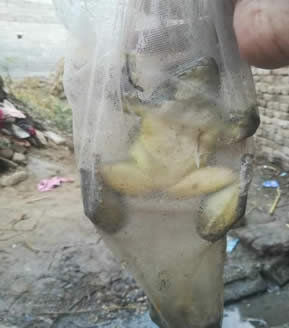
| Product Number 7 | |
| Product Name | Preparation of synthetic Grease and lubricants from the waste plastics |
| Researcher | Prof. Dr. Zahid Hussain |
| Department/Major Area | Chemistry |
Product Number 8 | |
Product Name | Synthesis of petrol and diesel from the used and discarded plastics |
Researcher | Prof. Dr. Zahid Hussain |
Department/Major Area | Chemistry |
Introduction:
Waste plastics is real threat to the environment. It includes variety of plastics including polyethylene, polystyrene, polyvinyl chloride and polypropylene. Almost all of them are available in the single use products and discarded to the environment. The waste of these plastics is real threat to the soil, water and other segments of the environment. The present work is devoted to the catalytic pyrolysis of the waste plastics into useful products including petrol and diesel. These products are later on separated by the fractional distillation. The process takes place by its own energy. The required for its heating is produced in this reaction. The use of low cost catalyst ensures the safe valorization of the waste plastics. The process is effective in terms of the oil yield which is 85%.
| Product Number 10 | |
| Product Name | Superabsorbent Polymer Hydrogel |
| Researcher | Prof. Dr. Nasrullah Shah |
| Department/Major Area | Chemistry/Advanced Materials |
| Product Number 11 | |
| Product Name | Biocompatible and Biodegradable Polymers Composites |
| Researcher | Prof. Dr. Nasrullah Shah |
| Department/Major Area | Chemistry/Advanced Materials |
| Product Number 12 | |
| Product Name | Magnetic Core-Shell Particles |
| Researcher | Prof. Dr. Nasrullah Shah |
| Department/Major Area | Chemistry/Advanced Materials |
| Product Number 13 | |
| Product Name | Green synthesized natural dyes, and nanoparticles |
| Researcher | Prof. Dr. Nasrullah Shah |
| Department/Major Area | Chemistry/Advanced Materials |
Introduction:
They are extracted from biological sources using various chemical techniques. They are better than synthetic products due to their biocompatible and non-carcinogenic nature. They are used in foods, cosmetics, analysis and biomedical applications.
| Product Number 14 | |
| Product Name | Biopolymer beads and Bioplastics |
| Researcher | Prof. Dr. Nasrullah Shah |
| Department/Major Area | Chemistry/Advanced Materials |
| Product Number 15 | |
| Product Name | DENT-Paste |
| Researcher | Dr. Hazir Rahman |
| Department/Major Area | Microbiology |
Introduction:
A research-based prototype herbal toothpaste (DENT-Paste) utilizing indigenous plant aqueous extracts were evaluated against multidrug resistant biofilm forming bacteria. The bacteria were found to be more sensitive to the formulated herbal DENT-Paste. Further GC MS/MS analysis of bioactive HPLC fractions was performed to elucidate antibacterial compounds. Some fractions were processed GC MS/MS analysis in which gallic acid, rosmarinic acid, quinic acid, vidalenolone, succinic acid and liquiritigenin were reported for the first time in the HPLC fractions.
The DENT Paste was evaluated for various parameters including dryness, color, taste, and appearance. The proven antimicrobial activity of the product make it safer, and effective for good oral hygiene, prevention of dental plaque and caries.
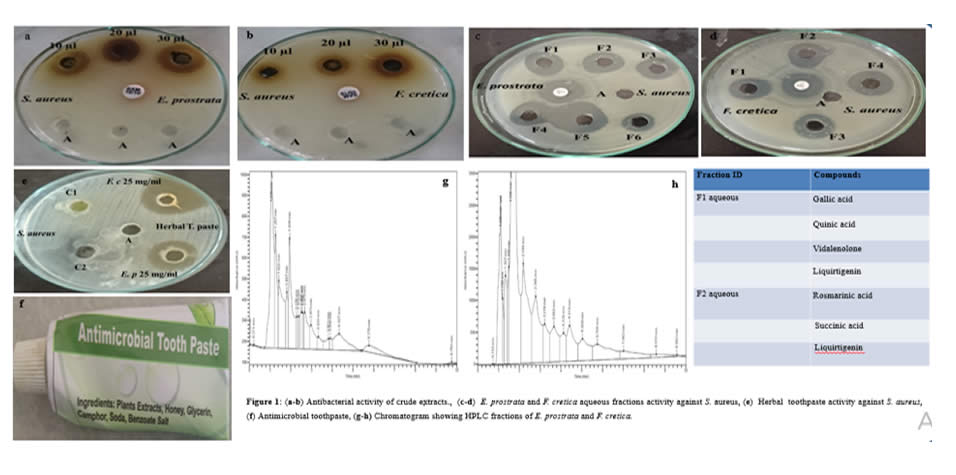
| Product Number 16 | |
| Product Name | Antibac-Soap |
| Researcher | Dr. Hazir Rahman |
| Department/Major Area | Microbiology |
| Product Number 17 | |
| Product Name | Skin Care Balm |
| Researcher | Dr. Hazir Rahman |
| Department/Major Area | Microbiology |
Introduction:
A research-based Skin Care Balm is developed from medicinal plant extracts against biofilm forming skin pathogens. Based on the antiseptic efficacy, two different native plants were taken, and their extracts were added to the appropriate base. The final product spreads smoothly on the skin surface, shows no irritating effect, and is stable at different temperatures. The formulated balm has a great potential for future natural remedies for skin care research. The product is optimized for use in maintaining skin hygiene and to prevent the deposition of biofilm forming skin bacteria.
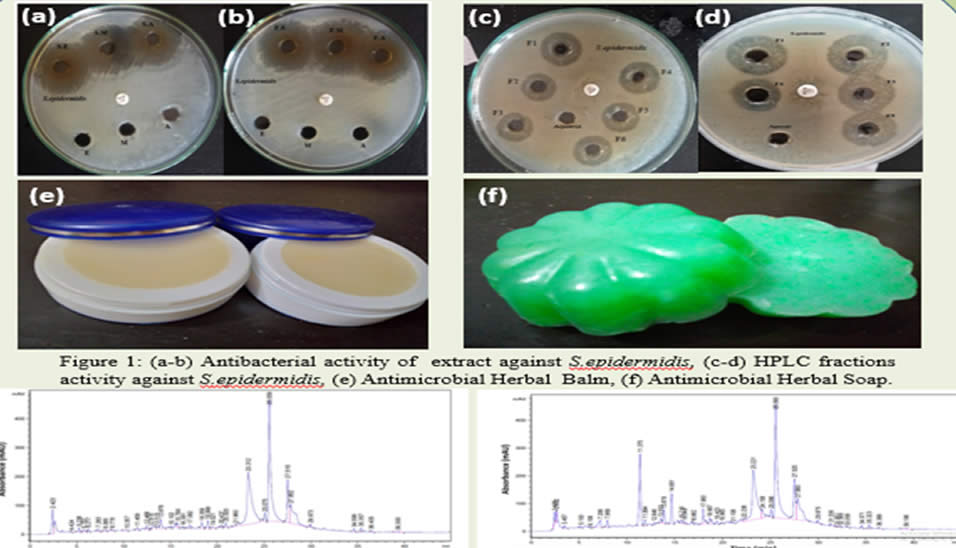
| Product Number 18 | |
| Product Name | Bact-Food |
| Researcher | Dr. Hazir Rahman |
| Department/Major Area | Microbiology |
| Product Number 19 | |
| Product Name | Anti-Covid drug |
| Researcher | Dr. Zahida Parveen |
| Department/Major Area | Biochemistry |
Introduction:
SARS-CoV2 is considered as pandemic and global public health concern since it causes high morbidity and mortality. Currently, there are vaccines available that may protect people from catching infection; however, an antiviral drug is a prerequisite to treat people once they have infection. In this regard our group developed a polyherbal formulation that will be cost effective. The raw materials are edible and will be easily accessible. This formulation comprises of Centaurium tenuiflorum, black seeds, olive oil. This formulation is developed and characterized in our lab at AWKUM. This drug controlled entry and attachment of SARS-CoV2 virus by inhibiting binding of spike protein- receptor binding domain to ACE2 enzyme (Angiotenisn converting enzyme 2). In vitro assays are completed in our lab. The drug is proven to be more effective than the standard. Medicinally this can be used as antiviral drug. However, collaboration with pharmaceutical industries is required for drug commercialization.
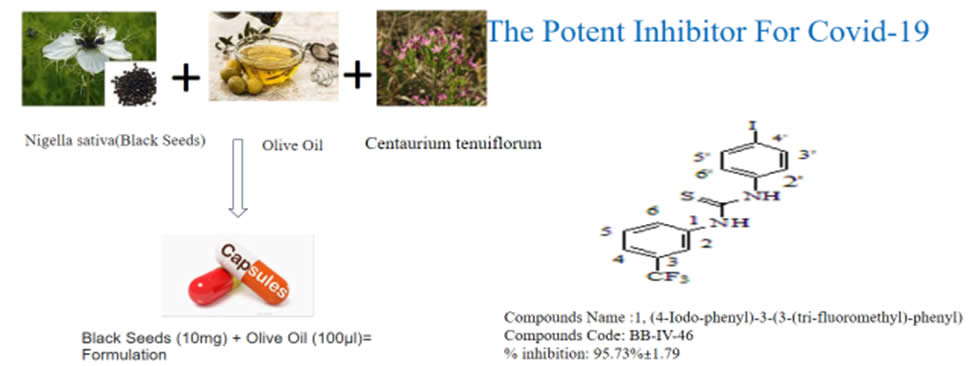
| Product Number 20 | |
| Product Name | Anti-diabetic drugs |
| Researcher | Dr. Zahida Parveen |
| Department/Major Area | Biochemistry |
Introduction:
These are polyherbal formulations comprises of Chicorium intybus (kasni), black seeds, fenugreek seeds, Saussara lappa (kushta), Lipidium sativum mixed in different ratios. Where S11 comprises of Chicorium intybus and black seeds. These formulations have already been tested in lab in different in vitro experiments against carbohydrate hydrolyzing enzymes and PTP1B (anti-diabetic drug targets) followed by in vivo animal trials with effective and potent results. This drug can be used as multi targeted inhibitor to treat Diabetes mellitus as these became active in in vitro antidiabetic assays This drug will be cost effective and non-toxic as all the ingredients are edible and easily available, This drug controlled hyperglycemia much better as compared to standard antidiabetic drug available in market (glibenclamide). Medicinally this is very much important in controlling diabetes type 2. This work will significantly contribute towards pharmaceutical industries for drug commercialization.
